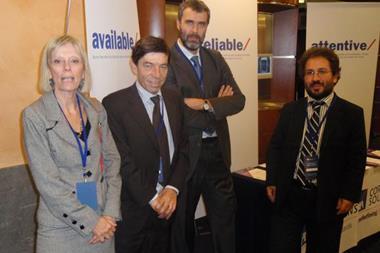Placing too much emphasis on broad coverage in a master policy could mean breaking the law, insurance managers told
Large corporates need to shift their global insurance buying patterns back to focusing on local policies, according to a leading broker.
Richard Mortlock, Aon Global UK’s technical director, told risk managers at a recent seminar that placing too much emphasis on the broad coverage in the master policy could be detrimental by leading to less compliant policies and overall higher tax burdens.
Added Mortlock: "Risk managers need to consider building programmes upwards from local policies, reversing the current market model of beginning with the master layer. In other words, the local policy must be designed to pay the claim, rather than putting heavy reliance on the master policy."
Aon said global programmes should be supported by:
• preferred reinsurance structures to remove problems of co-insurance
• strong overseas networks of brokers and insurers
• supplementary documentation for the company, insurer and broker outlining the detail that an insurance policy does not or cannot express
• compliance products and tools.
Mortlock commented: “Cross territory teamwork and incorporation of solutions to local concerns will be the next big event in the evolution of compliant global programmes – even though purchasing strategies need to be centrally coordinated. It may lead to additional technical analysis and administration but cuts down on non-compliant behaviour and the risk of your policy not delivering. Confidence in a global insurance programme can be enhanced by a strategic choice of programme and stand alone local policies.”
For more on this topic see StrategicRISK's Global Insurance Programmes Special Report
Case study
A worst case scenario
A factory burns down as a result of a nearby earthquake. The local policy has minimal coverage and excludes high level catastrophe related claims. The company looks to the master policy but different interpretation of wordings between local policy and master policy mean the excess master claim may not be paid. Added to this, if the event has happened in a country with a protectionist approach, regulators may impose penalties for having a non-admitted insurance or there may even be problems of the flow of capital into the country to help rebuild the factory.

















No comments yet